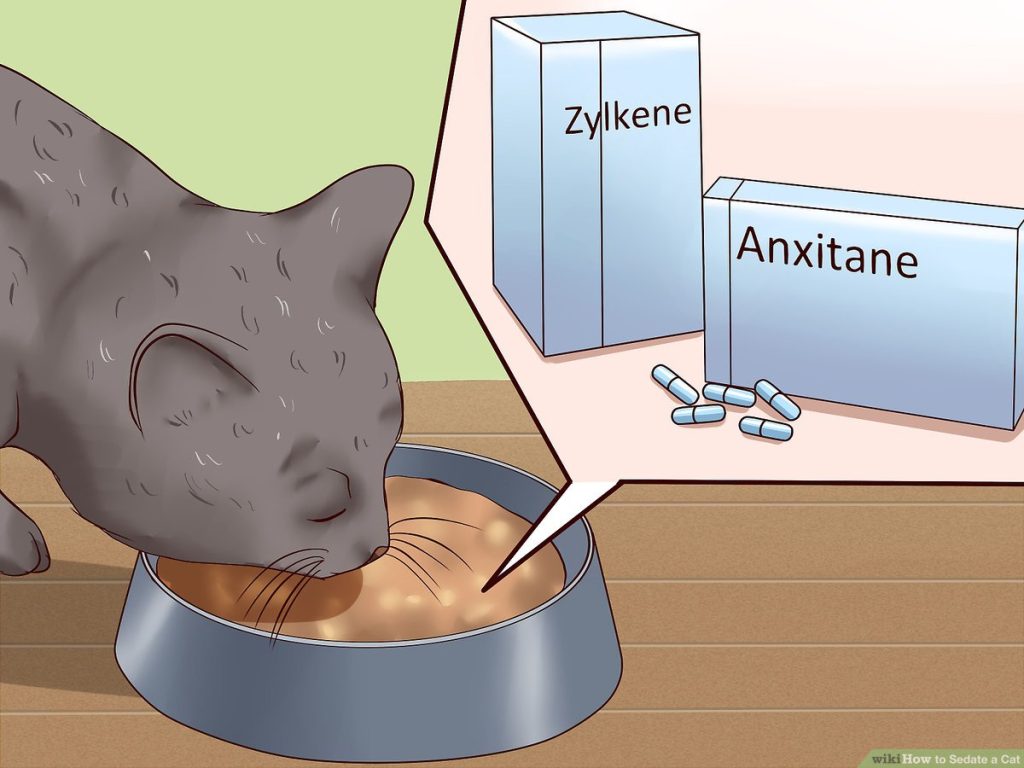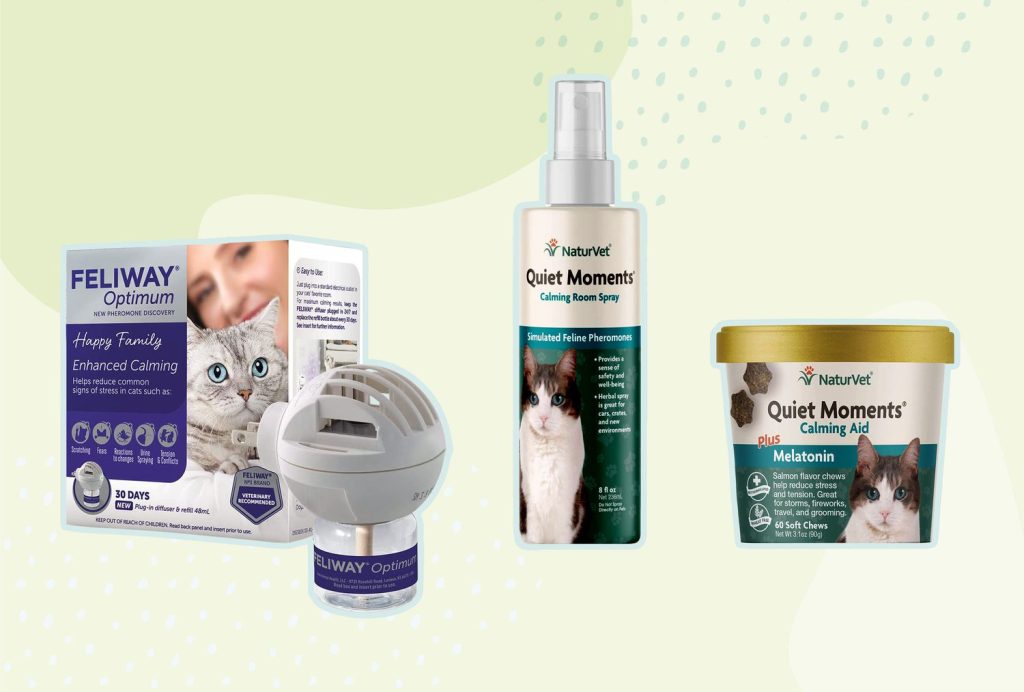Table of Contents
Take your cat on vacation with cat sedatives for travel
Are you taking your cat with you on vacation? First, we advise you to consider whether this will make your car travel happy. A cat is a real creature of habit and prefers to stay in its familiar surroundings. Someone who can feed and care for your cat at home is often the best solution if you’re going on vacation. If that’s not possible, a professional pet groomer or cat boarding facility may also be a good option for your cat to stay calm during the journey.
Is your cat one of those special cats that likes to go on vacation? Or is there another reason to travel with your adult cat? Then read here what things are necessary to go well prepared.

Travel with Cat- Entry requirements vary by country
If you are traveling abroad with your cat, we recommend you learn about the import regulations for cats in the respective country in good time. Your cat may need a passport, chip, and vaccination against rabies for all countries. This vaccination can be given from the age of 12 weeks and must occur at least three weeks before departure and be documented in the passport. Additionally, countries may have additional rules that your veterinary can inform you about.
Travel with your cat safely – Give your cat a sedative
First of all, it is essential to never transport your cat loose in the car rides. A good transport box is safe and comfortable for your cat and you, so you are not disturbed while driving. Additionally, if you’re on a long car journey. In that case, it’s essential to let your cat drink enough and take an occasional break so that your feline companion will not feel travel anxiety. Never leave your cat in the car, even for a moment. A car heats up very quickly, which can lead to overheating. In parking lots, always keep your cat on a leash with a harness to prevent it from running away. Finally, there are several ways you can make the trip more pleasant for your cat:
- Traveling is very exciting for a cat. To reduce stress while driving, you can give your cat a calming supplement sedation such as Zylkène or Telizen. These supplements have a calming effect without sedating the animal. Feliway spray in the car and transport box also has a relaxing effect. A blanket with the smell of home can provide additional security.

-
- Does your cat feel motion sickness, such as nausea, drooling, and vomiting? Then, an anti-nausea medication before the trip can prevent this. Ask your veterinarian for a prescription. Motion sickness occurs because the balance system is disturbed while driving.
Protecting from illness while traveling with cat abroad
Your cat needs good flea and tick protection to avoid tick-borne diseases when you get your cats and dogs on vacation. There is also a mosquito in the US that can infect your cat with heartworms. A heartworm dewormer, such as Milpro Cat, is essential when returning home a month later. If you are staying in the US for a long time, deworm your cat monthly with a heartworm treatment.
What else should you bring when you take your feline on vacation?
Be sure to take enough food and any medications or nutritional supplements for your cat throughout your vacation. It is also advisable to take some first aid supplies with you. One last tip we would like to give you: look up the contact details of a veterinarian and use the sedative recommended for cats to reduce travel anxiety near your holiday address when you get home in case your cat unexpectedly falls ill.
We wish you and your cat(s) a safe journey!
Calm kitty: Exploring medication and natural remedies for stress-free cat travel
Traveling with your feline friend can be a rewarding experience, but it’s not always a walk in the park, especially for anxious cats. To ensure a smooth and stress-free journey, it’s essential to consider your cat’s needs regarding medication and remedies. Here, we’ll explore various options to help lower anxiety during car or long journeys.
1. Prescription Medication:
When your cat experiences extreme stress when traveling, it might be beneficial to consult your vet for anti-anxiety sedatives. They can prescribe sedatives that are available by prescription. These medications are generally safe and can have a soothing effect, helping to calm cats and lower anxiety. However, it’s vital to use cat sedatives for travel only under the guidance of a qualified veterinarian, as they can advise on the best medication for your cat’s specific needs.
2. Remedies:
If you’re looking for alternatives to prescription medications, several remedies are available. Pheromone sprays or diffusers are a common choice. These products release calming pheromones, mimicking a cat’s natural scent markings, and can reduce anxiety in some cats. Additionally, introducing your cat to a travel carrier or crate before travel can help them become more accustomed to the environment and reduce stress when traveling.
3. Over-the-counter Options:
There are over-the-counter sedatives on the market, but it’s crucial to use them with caution. Always consult your vet before giving your cat any medication, even if it doesn’t require a prescription. These medications can have common side effects, and their suitability varies from one individual cat to another.
4. Feeding Your Cat:
Feeding your cat before travel can also help with anxiety during car rides. A light meal a few hours before the journey can prevent motion sickness and comfort your cat.
5. Training and Familiarity:
Sometimes, it’s not about medication but training your cat to be more comfortable with the travel experience. Gradually introduce your cat to the carrier and car rides, making them feel safe and secure.
Remember, every cat is unique, and what works best for one may not work for another. It’s essential to understand your cat’s needs and consult your vet to determine the most suitable approach to help your cat remain calm and stress-free while traveling. Whether you opt for prescription or over-the-counter medication or choose to explore remedies, your cat’s well-being should always be the top priority.
Frequently Asked Questions – Medicine for Cats While Traveling
1. When should I consider using prescription sedatives for my cat during travel?
Prescription sedatives are generally recommended for cats that become highly stressed or agitated during travel. If your cat’s anxiety is extreme and causes distress, consult your vet to determine the best sedative to calm your cat for travel.
2. How can I teach my cat to be more comfortable during car rides without sedatives?
To make travel less stressful for your cat, start by introducing your cat to the cat carrier and the car environment gradually. Familiarity can help lower anxiety. Also, consider using natural remedies like pheromone sprays or diffusers to help your cat feel calmer.
3. Are there over-the-counter sedatives available for cats during travel?
Yes, there are over-the-counter sedatives on the market, but their suitability varies for many cats. Always consult your vet before giving your cat any medication, whether it requires a prescription or over-the-counter options that can have common side effects.
4. What is the best way to calm a cat that becomes agitated during travel?
To calm an agitated cat during travel, consider using prescription sedatives as your vet recommends or explore natural remedies. Introduce a travel litter box, ensure the cat carrier is comfortable, and create a familiar and secure environment for your cat.
5. How can sedatives benefit my cat during travel?
Sedatives can benefit stressed cats by inducing a sleepy and relaxed state. They can help lower anxiety and make the travel experience less traumatic for your feline friend. Your vet can advise on the best sedative for your cat’s needs.
6. Can sedated cats still produce stress-related behaviors during travel?
While sedatives can make cats feel calmer and lower anxiety, some stress-related behaviors may still occur, but to a lesser extent. Sedatives aim to provide a more relaxed state, making the journey more manageable for both the cat and the owner.